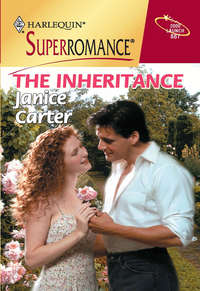
Полная версия
The Beekeeper's Daughter

“My hired help hasn’t turned up yet. Maybe you’d like to come with me?”
Will’s smile took ten years off him.
“I’d love that, if I won’t be in the way.”
“Not at all. In fact, I think you may actually be a help.” Annie headed for a nearby cupboard. She couldn’t explain why she’d been so impulsive, but the man had roused her curiosity. Handing him a tub of honey and waving goodbye was the last thing she wanted to do.
“I’ll just get my suit and a cardboard box,” she said.
“That’s it? Just the canvas and a cardboard box?” His frown reappeared. “How can you catch a swarm of bees with that?”
Annie smiled. “You’ll see.”
Dear Reader,
There is a scene in The Beekeeper’s Daughter where the heroine, Annie Collins, explains how honeybees learn to identify their hive by memorizing the outside of it, so they can always find their way home.
That’s how firefighter Will Jennings felt when he drove into Ambrosia Apiary. As if he were coming home. Not only was he revisiting a boyhood fantasy about the family of beekeepers who lived and worked there, but he was finding a new life—something he both needed and wanted.
Annie’s return home to help out with the family beekeeping business, on the other hand, was supposed to be temporary—a respite from her old life in the city. Just when coming home is beginning to feel too permanent for Annie, a letter and a stranger arrive at her door on the same day, changing her life forever.
In the end, both Will and Annie learn—just like the honeybees—where home and heart can be found.
Janice Carter
The Beekeeper’s Daughter
Janice Carter

CONTENTS
PROLOGUE
CHAPTER ONE
CHAPTER TWO
CHAPTER THREE
CHAPTER FOUR
CHAPTER FIVE
CHAPTER SIX
CHAPTER SEVEN
CHAPTER EIGHT
CHAPTER NINE
CHAPTER TEN
CHAPTER ELEVEN
CHAPTER TWELVE
CHAPTER THIRTEEN
CHAPTER FOURTEEN
CHAPTER FIFTEEN
CHAPTER SIXTEEN
CHAPTER SEVENTEEN
CHAPTER EIGHTEEN
EPILOGUE
PROLOGUE
WILL CLOSED the door gently behind him. His apartment was dark and stuffy with the closed-up smell of an attic in an old house. He set his duffel bag down and headed straight for the kitchen. If he was lucky, there might be a beer in the fridge.
There was, along with a quart of sour milk and an opened packet of salami that looked like something off a tannery floor. Will took out the beer, popped the tab and shut the fridge. No rush to clean it out. He had all the time in the world. The icy beer sent a jab of pain to the center of his forehead and Will clutched the back of a kitchen chair, overcome by vertigo. He closed his eyes, waiting for the room to settle down before sitting in the chair. Will breathed deeply, forcing air into his lungs. The pounding against his rib cage eased and he loosened his grip on the beer can. The moment had passed. When he finished the beer, he tossed the can into the recycling bin in the far corner and went into the living room.
Not much to get rid of in here. One armchair, one floor lamp, a small television perched awkwardly on a wooden folding table and a portable CD player with a stack of CDs on the floor next to it. He walked over to the window and raised the Venetian blinds, filling the small room with dust—and the first glimmer of daylight since the morning of the accident. Will sneezed.
He took a moment to stare down at the street, shrouded in the same pall of mist that had hung over Newark for the past few days. It was the end of April, though you’d never know it. Will checked his watch, thinking it must be later than the day looked, but it was only three o’clock. Too early for dinner—not that there was anything edible in the place—and probably too early for another drink, though he was tempted.
He withdrew from the window. He’d checked out of the hospital just that morning and had taken a taxi right to Headquarters downtown, where he’d made his resignation from the Newark Fire Department official. The rest of the day was his. And the next and the one after that. At least, until his savings disappeared, which wouldn’t be too long.
He paused in the middle of the room, considering his next move. Funny how unexpected free time was so wonderful when your days were full. Now time had suddenly become a kind of monster—something to be reckoned with, demanding to be filled.
Will’s mouth twisted. It was perverse really. People—doctors, the few friends he could still count on—had warned him about the importance of filling each day. Otherwise the temptation to sit idly inside his apartment would be overwhelming. He would find more and more excuses not to leave. And in spite of his resistance against taking advice, Will knew they were right.
Hence the decision he’d made in the middle of the night, days before he was discharged from the hospital. Forget taking a leave of absence. Forget the physiotherapy and the recommended counseling sessions. He’d known almost as soon as he’d regained consciousness hours after the paramedics whisked him to Emergency that his life would never be the same again.
Frank and Gino were dead and he was alive. Nothing he could ever do would change that cold hard fact. No matter what he did or how hard he tried to convince the rest of his squad that he was every bit the firefighter he’d once been, Will’s gut told him otherwise. Regardless of how many people told him he wasn’t responsible in any way for either death, Will knew there must have been something more he could have done.
He sucked in a deep breath. Not a good idea to relapse your first day out of the hospital, buddy. Stick to the plan. Keep moving. He grabbed the key to his Harley and headed for the door.
CHAPTER ONE
ANNIE TOSSED the bundle of mail onto the seat beside her and aimed the pickup away from the mailbox and down the long gravel driveway. She felt a small surge of pride at her skill in maneuvering the truck. Of course, she’d had a year’s practice to finally master the trick. The scratches on the side of the aluminum mailbox were testament to her efforts.
A maroon Buick was parked in the driveway. Shirley was already here. Annie bit down on her lip and parked close to the honey barn, well clear of the car. Shirley had a disconcerting habit of failing to check her rearview mirror when reversing. Annie grabbed the mail and made for the kitchen door. Through the sagging screen she could see her father sitting at the table across from Shirley, who was jotting on a notepad.
“Good timing, Annie,” he said, turning to her as she came in. “Shirley’s just writing down her cousin’s address and phone number for you.” In spite of the heat, her father was wearing his old navy pinstripe suit and a white shirt, unbuttoned at the neck. Annie couldn’t recall the last time she’d seen him in the suit, but guessed it might have been at her college graduation ten years ago. He looked every bit as uncomfortable in it now as he had then.
“You’re early,” Annie said to Shirley. “I hope you wouldn’t have left before I got back.” She hated the reproach in her voice but couldn’t help herself. Her anxiety over the past few weeks was now—on the day her father was leaving for his hip replacement surgery—at its peak. Shirley, her father’s “lady friend,” was driving him to Charlotte where the two would stay with her cousin while he recuperated.
“Of course we wouldn’t have,” Jack Collins said. He shot her an exasperated look edged with apprehension.
Annie set the mail on the table and went to the sink, turning her back on them while she ran the cold water. She wet her hands, rubbed them across her face and then filled a glass. “It’s warming up out there,” she said before taking a long drink of water. She placed the glass on the counter and added, “I hope it isn’t going to be too hot in Charlotte.”
“The hospital’s air-conditioned, I’m sure,” Jack said with an indifferent shrug.
Annie stared down at her father. He looked frail suddenly, and much older than his sixty-four years. Nothing like the robust man who’d swung her over his head till she’d begged to be put down when she was a child. She could still recall her shock at the change in his condition when she’d first arrived back home to help him with the business a year ago.
The past few days Annie had been so absorbed in her own worries about checking all the beeyards after the spring setup that she hadn’t considered how her father might be feeling about leaving the farm. It was probably the first time in years—if not in his adult life—that he was handing over the operation of the apiary to someone else, and she suspected he was having difficulty accepting that. On top of that, he had to face surgery and physiotherapy a long way from home.
Her eyes shifted from the top of his wispy, gray-haired head to Shirley’s even hazel gaze. They were both worried about Jack, Annie realized, and she gave Shirley a quick smile. “At least you’ll have Shirley to watch out for you, Dad. That should make the change from country to city more palatable.”
He grunted. “The sooner I get back here, the better.”
Shirley’s eyes flicked a message to Annie.
“Best not to rush it though,” Annie said lightly. “The doctor advised you to be in good shape before coming back home.”
Another grunt. “Humph. What do doctors know?”
“Well, hopefully more about hip replacements than we do.”
He tilted his head toward her. “Maybe I’ll take that up when I retire.”
She grinned. “What, you retire?” Annie hugged him. “Don’t worry about the business. I told you I’ve got Danny McLean helping after school and on weekends. He’ll be able to come full time once school’s finished for the summer.”
“I hope he’s got his driver’s license, otherwise he won’t be much help.”
Annie stifled her irritation. They’d been through this already. “He does and his father promised him the use of their truck if necessary.”
Shirley cleared her throat. “I think we’d better get going, Jack.” She stood, collecting her purse and keys from the table.
“I’ll get your suitcase,” Annie said, moving toward the hallway.
“Shirl put it in the car already,” he said. “We were just waiting for you to get back so’s we could say goodbye.”
Now Annie felt guilty about the ice cream she’d stopped for on her way out of town. She reached for her father’s cane propped against the refrigerator and handed it to him as he slowly and painfully rose from his chair. She hated to see him moving like an old man. If he hadn’t been so stubborn a year ago, he might have been able to have the surgery in the winter, when beekeeping came to a dead halt.
On the way out to the car, Shirley told Annie she’d call her in the morning but Annie was focusing on her father as he leaned against her. She knew the surgery was nothing to worry about and knew, too, that he was otherwise in good health. She simply wasn’t accustomed to any vulnerability in a man who’d labored tirelessly and effortlessly all his adult life.
Shirley opened the passenger door and waited for Annie to help him into the car. Annie wrapped her arms around him as tightly as she dared.
“I’ll keep an eye on Paradise for you,” she whispered. Paradise was his nickname for their home.
“You do that,” he said, patting her cheek. “Remember, those pesky bees may wander miles every day but they always come home. And I will, too.”
After an awkward struggle getting his six-foot length into the car, Annie closed the door and bent to the open window for a last kiss.
“You may want to think about hiring another student,” her father said. “Danny hasn’t done the work before and may be a bit slow. Can’t hurt to have a third pair of hands.”
If only it were that simple. Getting Danny to work for her had been difficult enough. Her father didn’t realize that most of the local high school kids wanted easier, better-paying jobs in town.
“And one more thing,” he added, lowering his voice. “If you get a call from the people at that damn food conglomerate, tell them to go to hell.”
“Jack,” Shirley interjected.
If he weren’t going off to a hospital for surgery, Annie might have been tempted to take the bait. They had an ongoing argument about selling the business.
“I think you’ve already done that, haven’t you?” Annie reminded him instead. “We’ll talk about it when you’re back home. It won’t be that long, you know. Just a few weeks.”
He started to say something but Shirley quickly opened the driver’s side door and climbed inside. As the engine turned over, Jack leaned out the window, determined to get the last word. “All’s I’m saying is, get hold of Arnie Harris if they start pestering us again.”
Arnie was not only their lawyer but her father’s longtime friend. Wonderfully impartial, Annie thought, pretending not to hear him over the idling car. She slapped her palm firmly on the roof and jumped aside as Shirley shifted into reverse.
“Take care,” she called out as the car headed down the driveway. Annie watched until it turned onto the highway, then went inside, sat in the chair her father had just vacated and tried not to cry.
When the moment passed, she reached for the mail. There was the usual collection of catalogues from suppliers and a handful of bills, which Annie pushed aside for later. They’d only be a reminder that time was running out for the apiary. She and her father would have to come to some agreement about selling sooner rather than later. The last item was a letter addressed to her from her father’s sister in Charlotte. Annie recognized the delicate spidery handwriting of Auntie Isobel, who’d called a few days earlier to wish Jack good luck.
Annie was about to open it when she saw the end of a long white business envelope sticking out of a catalogue. Pulling it free, she saw that it had been sent to her, care of her aunt, who had re-addressed it to the farm.
St. Anne’s Adoption Agency
256 Elmgrove
Charlotte, North Carolina
The envelope shook in Annie’s fingers and she dropped it onto the table. Stumbling out of the chair, she got another glass of water and, as she drank, stared at the envelope. Maybe it was merely a request for financial support. A fund-raiser. Annie pushed that faint hope aside. Not likely. She’d had no contact with the agency for thirteen years and had almost obliterated it from her memory. Almost.
She took a huge gulp of water, moved back to the chair and sat. Finally, she picked up the envelope and tore it open before she could change her mind.
Dear Ms. Collins,
We have recently been contacted by the adoptive mother of the baby girl placed by you for adoption with our agency in August 1992. She wishes us to assist her daughter in locating her birth mother. Pursuant to the agreement in the contract signed by all parties in 1992, we are simply passing this information on to you. There is absolutely no obligation on your part to agree to this request, but should you wish to do so, please contact me at the agency. If we receive no response from you we will—as per our agreement—consider the matter closed and advise the parents accordingly.
Respectfully yours,
Sister Mary Beatty
Annie slowly set the letter down. Taking a deep breath, she picked up the note from her aunt, which related that a letter from the adoption agency had arrived and that she was forwarding it. In typical fashion, Aunt Isobel had asked no questions nor offered any speculation about what the letter might contain. It had ended with the unnecessary reminder that should Annie need her for anything, she was always available. Annie blinked back tears. Aunt Isobel had never let her down.
In all the years since the birth and adoption, her aunt had never referred to that summer of ’92. Perhaps she’d sensed that Annie didn’t want to talk about it—which was true—or that the subject would be too painful for her. Also true. Yet it had been her aunt’s quiet, nonjudgmental support that had spurred Annie to finish college and become a teacher. And now she had to make the tough decisions on her own.
Annie glanced at the kitchen wall clock. It was almost four and Danny would be arriving soon. Working hard for a few hours was just what she needed to take her mind off the letter. She took it upstairs, along with her aunt’s note, and tucked them in her dresser drawer. This decision, she knew, wouldn’t be as easy.
On her way downstairs the telephone rang and she froze midstep, caught by the crazy thought that it was a follow-up from the agency. Paranoia. It was more likely Danny, telling her he was going to be late. She dashed to the kitchen phone.
WILL GRIT HIS TEETH as he listened to the digressions that popped up like detour signs in the shopkeeper’s account of how to get to Ambrosia Apiaries. He hoped the road there wasn’t going to be as winding as these directions because the van was already showing signs of fatigue.
“But if it’s their honey you want,” the store owner said, “I can sell you a jar myself. Save you the trouble of going all the way there.”
Will shook his head. “No thanks, I just want to have a look at the place.” The man’s raised eyebrow made him add, “I’m a friend of the family.”
“Oh yeah? Jack or Annie?”
“Uh…Annie.”
The man’s frown deepened. Will was painfully aware of the stillness in the fine food shop. No doubt the man was wondering why, as a friend of the family, Will didn’t know how to get to the apiary. Why hadn’t he simply told him the truth? That he’d read about Ambrosia Apiaries in a magazine article years ago and had come looking for the place.
There were only a handful of customers inside the store, and they’d stopped talking when he’d come in. Now a couple of them exchanged whispered comments, and he felt their surreptitious glances at his scar. He ought to be used to stares by now. The problem was, every stare was another reminder.
“Thanks for the information,” Will said and, every eye on him, hustled out.
He strode toward the van, parked half a block away. Of course he could have simply purchased the honey, as the man had suggested. But honey wasn’t his reason for coming to Garden Valley.
The sight of a brand-new Honda motorcycle parked behind his van made him smile, nostalgic. It was an auspicious reminder of his decision to walk out of his old life and begin a new one. He paused to admire the bike, much flashier than his old Harley Davidson.
The Harley had been the last of his personal possessions to go. Will had kept putting off selling it, the symbol of a wilder, more carefree life. Before the accident.
His gaze shifted to the somewhat beat-up camper van, a far different symbol for the new direction his life was taking. The flare of nostalgia suddenly died. No regrets. Will climbed into the van, carefully eased out of the parking spot and, with one last glimpse in his rearview mirror, headed down the main drag of Essex, North Carolina.
It was a pretty town with a larger commercial center than he’d expected for a population of eight thousand. Though he didn’t know if that figure—emblazoned on the town’s welcome sign—included the outlying rural area. What he did know was that as soon as the van had begun its descent from the foothills an hour ago, he’d been so awestruck at the size and beauty of the valley that he’d had to pull off the road.
Garden Valley was a fitting name for the lush countryside that rolled away beneath him. The rooftops of Essex, clustered at the base of the hill, glittered beneath the midafternoon sun. Surrounded by verdant pastures and tracts of woodland, the town sparkled like underwater treasure. It could be a scene out of a fairy tale. It was definitely a scene out of the magazine article folded up on the seat beside him.
He headed southwest, as the store owner had instructed, taking his time. Now that he’d finally reached his destination, he had no idea what his next step was. Pull out the article and confess he’d saved it since he was twelve years old? Yeah right. Now that he was here, what did he expect would happen?
That was the issue, he mused as he searched the signs at each crossroad after leaving Essex behind. His ex-wife had once accused him of running away from his problems and he’d bristled at the suggestion. Yet here he was, proving her right. Suddenly he caught the sign for Dashwood Side Road, slammed his foot on the brake and turned onto the hard-packed gravel.
Five miles in, the man had said, and then make a left at somebody’s orchards. Will had forgotten the name of the farm itself, but the barn behind the house was supposed to be bright red. Weren’t all barns red? He was going less than twenty miles an hour and had plenty of time to make his turn when he spotted a red barn and silo immediately ahead on his left. What he failed to notice was the other vehicle coming at him like a tornado.
Pebbles and dirt pelted the van as Will cranked the steering wheel right. By the time he’d straightened out the van, the other vehicle—a mud-brown pickup—had disappeared. Damn. Country drivers were no better than city ones. Will kept going, occasionally checking the rearview mirror in case the maniac in the pickup came back.
Another three or four miles after the turn, according to the store owner, and he’d see the sign at the end of a long driveway. Will passed fields of some kind of bushy, flowery crop on both sides of the road, crossed over a narrow stone bridge spanning a strip of bubbling water, rounded a curve and spotted a yellow and black sign up ahead on his left. As he drew nearer, he pulled over and turned off the engine.
The sign, with its curlicue scrawl Ambrosia Apiaries, J. Collins and Family, had seen better days. It had been fashioned out of sheet metal into the shape of a picture-book-style beehive. But the apex of the hive had twisted into a rusting knot. Will guessed that the scattering of black spots was supposed to be honeybees. Or maybe the yellow paint had just worn off.
He sat for a moment. What should he say? Just passing through from New Jersey and happened to notice the sign. He cursed again.
He’d never really expected to find the place. The article had been written years ago and who would have thought that the apiary, with its tired old sign, would still be here? A twelve-year-old kid’s boyhood fantasy. Buying honey was the plan. Besides, he couldn’t leave without at least seeing the place. Maybe he’d even catch a glimpse of the girl in the picture—Annie. The girl he’d once befriended in his imagination. Someone with a family that could be traced back a few generations.
He was about to drive up the lane when he noticed a vehicle approaching from behind. Will watched as it grew larger in the rearview mirror. Seeing the square front end of a mud-brown pickup, he frowned. The same crazy driver who had almost sideswiped him? The truck slowed as it passed. Maybe he’d have a chance to give the guy a piece of his mind. Then it turned sharply into the driveway to the apiary and lurched to a stop.
Will waited, his eyes riveted on the pickup. Someone was getting out, striding purposefully toward him. Male or female? The sun was in his eyes and Will couldn’t decide if the person was being confrontational or not. Trouble was the last thing he was looking for, but on the other hand…
Will realized with some relief that the driver was indeed female. Very female, he thought. Jeans and a loose shirt failed to conceal the evidence. The unbuttoned shirt flapped open in the breeze to reveal a form-fitting tank top. She marched right up to his open window.







